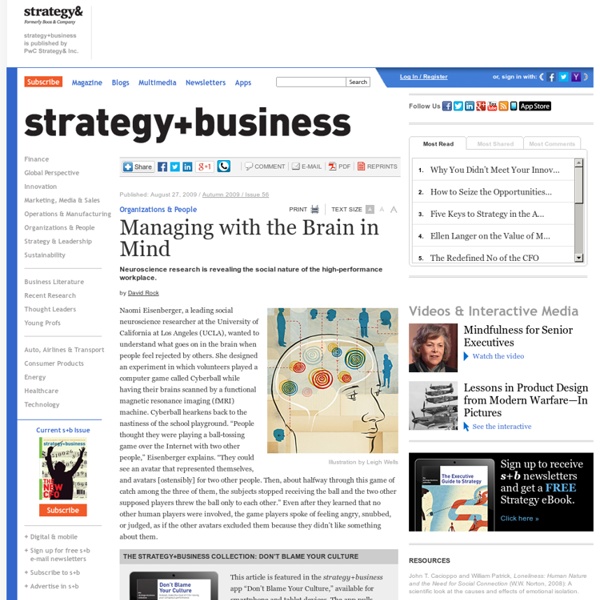Managing with the Brain in Mind

Your Brain At Work
While people sometimes use the word ‘family’ to describe their work colleagues, neuroscience research makes it clear that our brains experience the workplace as a social system. Social interactions often decide whether an employee stays at a company; positive reinforcement from our boss or peers can improve our mood for an entire day. In contrast, lack of social interaction with peers and a non-supportive or critical environment are often cited as the primary reasons for leaving a job. In an article called “Managing with the Brain in Mind,” David Rock explores the implications to leaders of treating the workplace as a social system. While employees learn to temper their reactions to this blow and some even rationalize the situation, they also limit their commitment levels and reduce their engagement. They become purely transactional employees, reluctant to give more of themselves to the company, because the social context stands in their way. You Can’t Work at Work The Poison of Power
Related:
Related:



